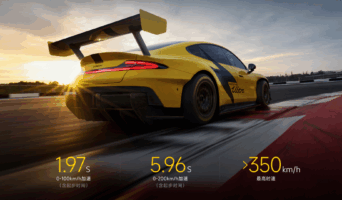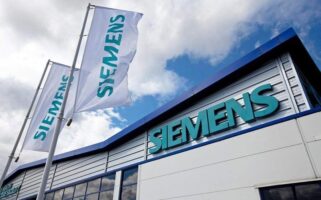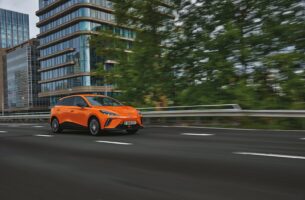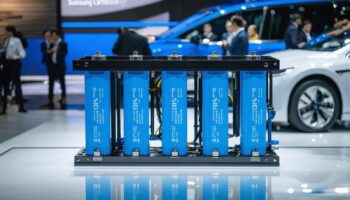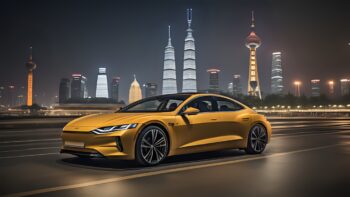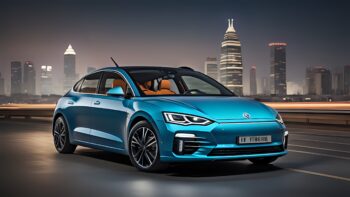The “Auto crisis” in Germany
The beginning and progression of this German Auto crisis
VW has gone from being a strong player to the “sick man” of the German auto industry. Where the car manufacturer, along with its suppliers and contract dealers, once formed the industrial heart, it is now a company for which everything is at stake: locations and jobs, technological leadership, reputation, and customers, and not least, political support.
In a gradual process, various factors have infected the company over several years and brought it to the brink of survival. These factors include dishonesty, loss of trust, and wrong strategic decisions in the past. The origins of this go back about ten years.
First the diesel scandal, then “all-electric”: VW remains the only carmaker committed to this strategy.
The diesel scandal of 2014/2015 marks a key turning point in the company’s decline. For years, customers and authorities were deliberately misled by VW. In 2015, the fraud came to light, plunging VW into the deepest crisis in its history. To this day, this has cost VW more than 32 billion euros and, more importantly, the trust of people in what was once a respected car manufacturer.
This was likely also a decisive reason why VW wanted to leave behind the combustion engine, especially the diesel engine, and start a new chapter in its production history. In 2021, it was announced that VW intended to produce its last combustion engine between 2033 and 2035 in Europe. In Norway, only fully electric cars would be offered starting in 2024.
Thus, VW, along with Mercedes, was the first German automaker to set the course for “all-electric” and so far remains the only one committed to this path. All other German carmakers continue to push for a balanced role for both combustion engines and electric cars, relying on multiple strategies. A new realism has emerged in their boardrooms. Mercedes has even adjusted its strategy in favor of the combustion engine.
VW, Mercedes, BMW, and Audi produce electric cars more expensively than Tesla.
That this rejection of technological openness might backfire at VW was likely not considered in the boardroom. Yet, under the given circumstances, this was foreseeable. German carmakers are under enormous pressure. A fierce price war is expected in the electric mobility market. VW, Mercedes, BMW, and Audi produce at higher costs than, for example, Tesla.
This makes German electric cars more expensive, making them less attractive compared to foreign brands. The price problem is further exacerbated by increasing competition from China. While Chinese manufacturers do not yet dominate the German market, providers from the Far East are increasingly discovering the German electric car market. More and more Chinese electric cars, which are significantly cheaper than German models, are flooding the market.
In Germany, the “Ampel-coalition (1)” has caused subsidy chaos.
Due to pricing, German electric cars are losing not only their appeal compared to foreign competitors but also compared to combustion-engine cars. VW still does not have an affordable electric car in its lineup. Particularly painful: the Volkswagen Group, which once built small, affordable cars like the Beetle and the Golf, is currently failing to bring an affordable electric car to market. Only by early 2026 is there expected to be an electric model (VW ID.2) that will cost around 25,000 euros. But by then, it might be too late.
Additionally, uncertainty remains about the future of the combustion engine. After a year and a half, it is still unclear, thanks to “Ampel” traffic minister Wissing, whether the combustion engine has a future in Europe. The minister’s promises to quickly provide clarity with a regulation have not been fulfilled. The new European Commission has also not commented yet. Furthermore, the Ampel government has caused subsidy chaos in the field of electric mobility, confusing many customers. The environmental bonus was scrapped overnight at the end of 2023.
With the subsidy, the Ampel government boosted electric car sales, only to let them collapse radically afterward. Another reason for the decreasing attractiveness of electric cars is that Germany has failed to strategically prepare for the transition to the electric world. For example, there is a lack of raw materials here and throughout Europe. In contrast, China has perfected its strategy for the electric world, having deliberately built and promoted an industry along the entire value chain, from mining to refining raw materials and battery cells.
Car production locations in Germany: This cannot continue.
These developments show: if we want Germany to remain a strong automotive industry location, we cannot continue as we have. We need new solutions. However, we strongly reject financial state support or a four-day workweek. We believe it is much more important to set the framework for companies to operate independently. Technological openness is our highest priority.
At VW, it is evident that demonizing certain technologies and forcing companies to focus on one technology is not successful. Therefore, we want the market to decide which technology is considered the best. Additionally, we see it as essential to create planning certainty and reliable perspectives for our car companies. This includes, for example, creating clarity at the European level about the future of the combustion engine.
The current back-and-forth must stop because, as with VW, it can lead to premature technological decisions that cause a company significant problems. Individual subsidy programs, such as premiums for electric cars, are not seen as effective. The environmental premium example from Ampel shows where that leads. We are also critical of reintroducing the scrappage premium. We want clear and consistent policies.
Problem for car manufacturers in Germany: electricity is too expensive.
This includes, for example, promoting technologies like electric mobility by investing in the right infrastructure. This includes roads and bridges, railways, power lines, hydrogen and CO2 pipelines, as well as the expansion of charging infrastructure and hydrogen filling stations. It is also important to reduce the financial burden on our companies. The tax burden for companies should be reduced to a globally competitive level. The high tax burden is a disadvantage for local companies in global competition and limits their ability to finance necessary investments for the transition.
Additionally, we must ensure competitive electricity prices. This applies to both production and consumers. Increasing grid costs are becoming an ever more significant cost factor. Regarding charging speed, we believe it makes sense to extend the reduction of electricity taxes to the European minimum level for private consumers.
“The problem is bigger than VW”: BMW and other manufacturers are already starting to weaken.
We also attach great importance to reducing dependency on foreign parts and raw materials. Therefore, we must expand our energy and raw material partnerships. Especially in times of high geopolitical uncertainties, it is essential for Germany and the EU to expand such collaborations and develop new alliances. This ensures that domestic production is maintained.
Finally, we must strengthen free trade. Therefore, we want to promote the conclusion of free trade agreements. Because free and fair access to the market, as well as the reduction of tariff and non-tariff barriers, are essential for the auto industry, which has an export share of more than 75 percent. Measures like customs duties, which set off a spiral of protectionism, are not the right approach.
There is no time to lose. Only if these steps are implemented quickly can it be prevented that other parts of our auto industry are affected by the virus that has struck VW. Companies like BMW are already starting to weaken. Only if the virus is contained quickly can an auto crisis be avoided. And the consequences for our (read: European) economy would be unimaginable: the problem is bigger than VW!
(1) The “Ampel coalition” in Germany refers to the governing coalition made up of three political parties:
- Die Grünen (the Greens)
- FDP (Free Democratic Party)
- SPD (Social Democratic Party of Germany)
The name “Ampel” (traffic light) comes from the color of the parties: red (SPD), yellow (FDP), and green (Die Grünen). This coalition was formed after the 2021 federal elections and marks a collaboration between progressive and liberal parties. The Ampel coalition focuses on various issues, including climate change, digitalization, and social justice.
Source : Merkur.de
Header : Volkswagen plant Wolfsburg – Volkswagen Newsroom
EVTrader® – The biggest EV-Database worldwide for all Electric Vehicles Manufacturers and Industry related companies.
